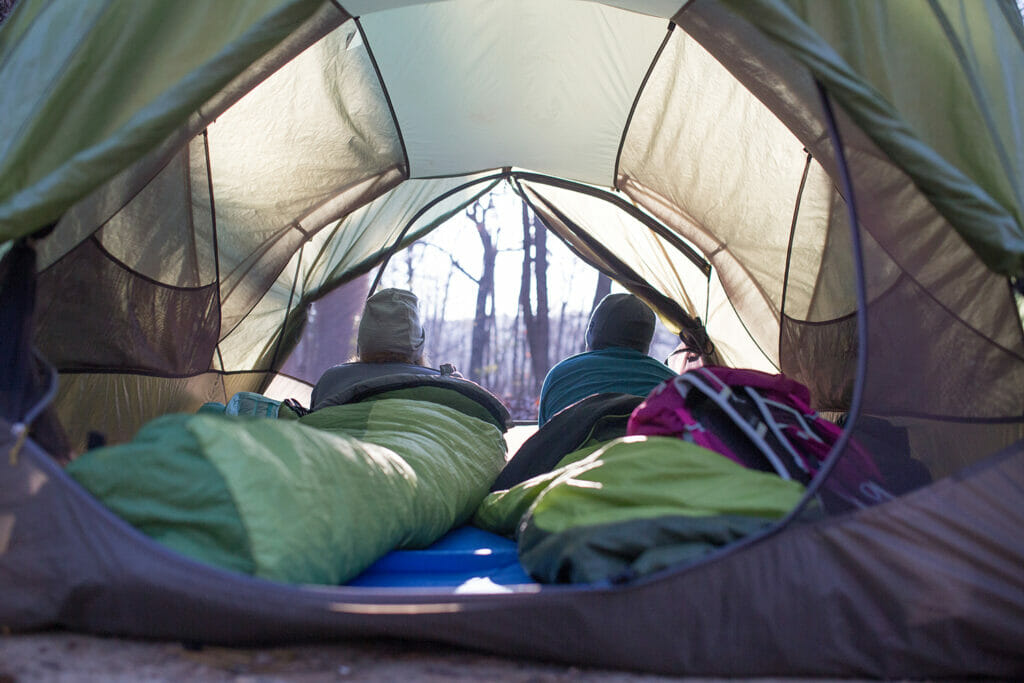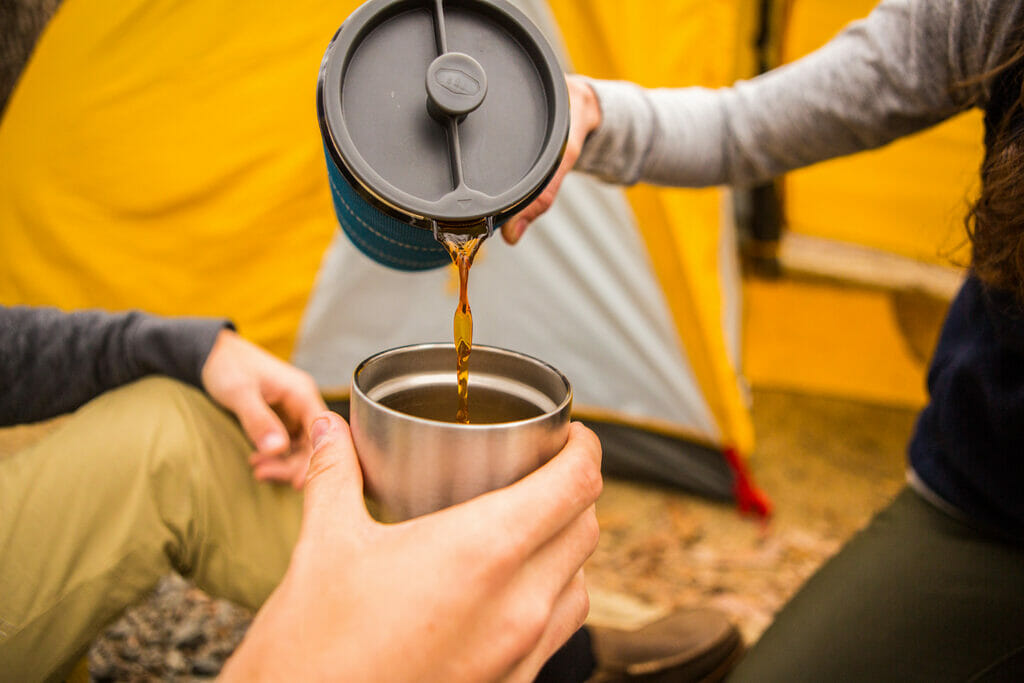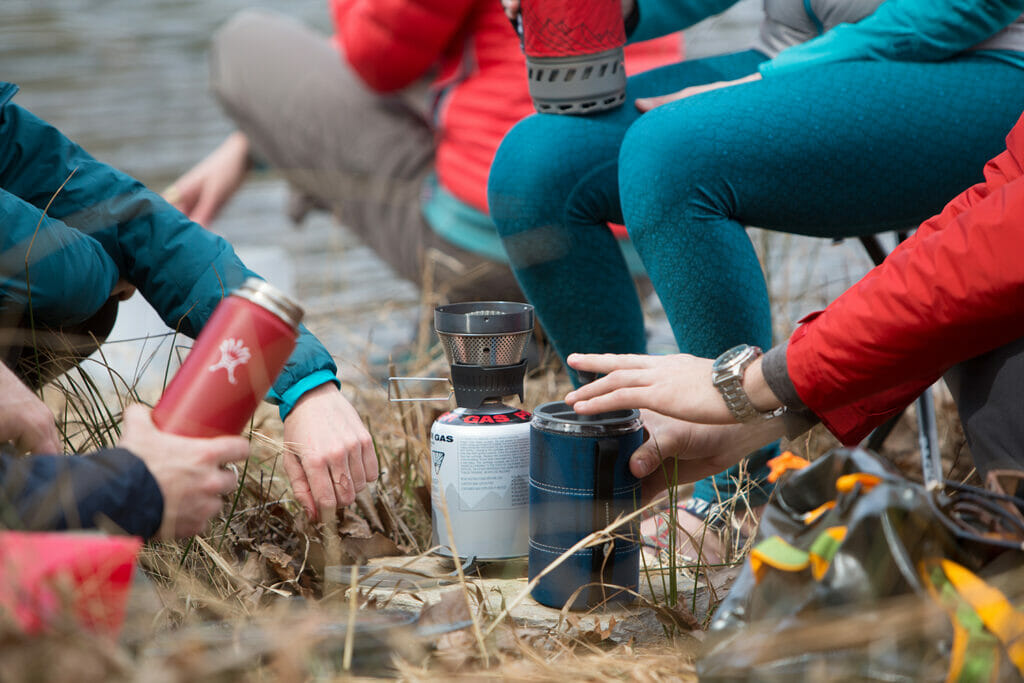Trusty’s Top 5 Winter Camping Tips:

Written by: Austin J Hill
As the new year ramps up and the temperatures drop most folks tend to shy away from the great outdoors. At Great Outdoor Provision Co., we’re gearing up for a winter spent outside doing the things we love. Here are some helpful tips for winter time camping:
- Hot drinks. I tend to be a coffee snob, spending time each morning grinding beans, letting the water reach the right temperature, pouring just enough of the water over the fresh grounds to let them bloom, and then finishing off the remaining water to let it steep in the aero press until I’m ready to leave for work. Then, it’s straight down the hatch. In the backcountry, however, I toss all of that out the window. Using whatever heat source available, I heat my water to scalding, throw in an instant coffee tube and a packet of hot cocoa mix. I take time to savor each sip of my backcountry mocha and at that moment it’s the best hot drink I’ve had. Tea or hot gatorade by the fire at night, coffee midday in the bow of my canoe, or the oh-so-wonderful and simple backcountry mocha for breakfast is a must have for cold weather adventures.

- Hot water bottle. I like sleeping in the freezing cold; being trapped in a bubble of warm air as the cold nips at my nose and cheeks. Even in the winter at home I like to crack my window and have the fan at full blast, but my feet do not always cooperate right away. If my feet are cold, everything is cold. I deal with it at home by putting on socks and removing them while half-asleep in the middle of the night. When I’m camping, I throw a Nalgene full of hot water at the foot of my sleeping bag. I take time to properly loft my sleeping bag after it’s been compressed in my dry bag or pack. As I’m cooking dinner I take my extra water bottle and fill it full of water and toss it in. Not long after, I’m headed for bed and the coziness that ensues is what I think about at times while trying to fall asleep in my bed.
- Baby Powder. The same Johnson & Johnson bottle has been with me on many adventures and have been refilled countless times. That small bottle is the 11th essential in my ten essentials kit. Baby powder is a great item for beach camping as it removes the sand from unwanted places and leaves the tent from becoming a dry, grainy desert. Not only does baby powder remove sand, but it also removes moisture. Once I’ve taken my socks off I rub baby powder on my feet to dry them out. Doing this removes the horrible feeling of sticky feet against the nylon-interior of a sleeping bag. Wet feet are cold feet.
- Layering. This can be as complicated and dialed in as you’d like or straightforward and simple. The most important rule is do NOT wear cotton. Cotton is referred to as the death cloth as once it gets wet, it stays wet and can lead to dangerous outcomes. Get out of wet clothes once settled. Here’s a simple breakdown of the layering system:
- Wicking Layer (keeps moisture away; ex. wool, silk, polyester, polypro)
- Insulation Layer (traps heat; ex. fleece, down)
- Shell Layer (resistant to water, wind, and the elements; ex. nylon, GoreTex)
- Extremities Protection (fleece/polyester for head, fleece for hands, and wool for feet)

- Eat calorie dense foods. Daily caloric needs range from 1,800 for a sedentary person to 6,500 for expeditions in the winter. For winter time trips, plan on 3,800 to 6,500 calories per day if very active. Carbohydrates should make up 60% of the backcountry winter time diet. Carbs, such as pasta, potatoes, candy, and rice provide short-term energy bursts. Fats, long-term energy sources, should make up 20-25% of the diet. Examples include cheese, nuts, butter, meats, and vegetable oil. The last 15-20% of the daily diet are proteins. Proteins provide building cells and tissue such as skin and muscles. Meats, fish, and soy products are sources of complete proteins while cereals, vegetables, fruit, and legumes are sources of incomplete proteins.
There are far more tips and tricks and lists of dos and don’ts to be found on the endless pages on the internet. We hope this article is helpful to get you started or provide you another tool for the arsenal when braving the elements and brisk temperatures in the winter. As always, please call or stop in for any of your outdoor questions or needs.
